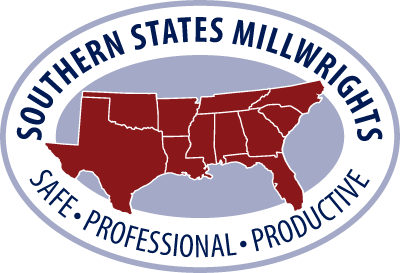
I cannot stress enough how important it is that you vote in the mid-term elections on Nov. 8. As union millwrights, it is vital that we let our voices be heard – in every election and especially this one. Many issues critical to our work opportunities and union way of life are at stake.
Please research the candidates to find out where they stand on issues affecting union millwrights. Now is the time to do that research. I encourage you to vote for candidates who support good union jobs, union pension plans, access to high-quality training, and living wages and benefits for all working people.
Your elected officials have a lot of influence over the types of jobs created in your state and community. Some politicians lure high-profile projects to their areas with taxpayer-funded incentives, then don’t pay attention to the labor force used to build and maintain those projects. Or, even worse, they encourage the use of a non-union workforce. I imagine you’re already aware that many politicians are so tied to corporate interests that they turn a blind eye to illegal labor practices. Through those practices, including worker misclassification and abuse of visa programs, contractors can avoid paying fair millwright wages or providing benefits. That cheats workers, drives down our wages, threatens our benefits, and results in less work for union contractors and millwrights. When you go to the polls, please stand with candidates who support prevailing-wage laws (including the Davis-Bacon Act), strong wage and hours laws, robust labor-law enforcement, and project labor agreements (PLAs), which require contractors to hire skilled workers and pay them at union scale. We also need to elect candidates who understand falsely named “right-to-work” laws are about weakening union power to bargain well and enforce contracts.
Thanks to the Bipartisan Infrastructure Law and a federal PLA requirement enacted this year, union millwrights are set to take on a ton of work in upcoming years, but that could change if certain politicians are elected. This election could affect the Davis-Bacon prevailing-wage law as well. There are candidates who would like to end Davis-Bacon, and the small margin of legislators who support it could be lost. Worksites affected by the federal PLA and Davis-Bacon Act include airports, some power plants, water-treatment and hydroelectric facilities, and TVA, Savannah River, Oak Ridge, and NASA projects.
Some candidates plan to invest in and expand free, high-quality training programs like the ones run by our joint labor-management trust funds. Other candidates either don’t have workforce-development on their radars or support industry-centric programs that don’t give labor a seat at the table and aim to steal resources from our programs. Our Registered Apprenticeship Programs allow apprentices to work for any signatory contractor and gain a variety of on-the-job learning experiences instead of being indentured to a single contractor. Journey-level millwrights benefit tremendously from our free training programs, too. The fields we work in evolve quickly, and continuing education allows members to stay competitive in the job market by keeping their skills current.
Depending on who is elected, our pension funds could flourish or suffer. We must have membership growth for our pension funds to be healthy enough to support the needs of retirees. Some elected officials make this extremely difficult by creating policies and legislation that stifle unions in favor of corporate interests, as described above. Politicians also can play a direct role in preserving our union pensions. Through a provision of the American Rescue Plan passed by Congress last year, 200 multi-employer pension plans backed by a federal insurance program that was projected to become insolvent in 2026 are now protected until 2051. This saved pensions for millions of union workers and retirees. Find out which candidates on your ballot support actions that protect union pensions.
If you are a union apprentice, member, or retiree, you’ve been able to work under collective bargaining agreements that guarantee fair wages and benefits and give workers a voice in jobsite matters. Some candidates want to eliminate these opportunities. Union membership has declined from 30% in the 1950s to 10.3% in 2021, according to the U.S. Labor Department, and the decline is associated with a shrinking middle class. We need to turn those statistics around by electing politicians who will fight for working people and unions.
Again, please set aside time to research the candidates on your ballot before you go to the polls. Find out where they stand on the issues affecting you, your family, our union, and all working people. Click the button below to see a listing of candidates who are strong on union millwright and carpenter issues. Elections have consequences. And union millwrights have power when we vote together. Let’s make this election a win for us.
In Solidarity,
Allen W. Jennings, Executive Secretary-Treasurer
Southern States Millwright Regional Council
